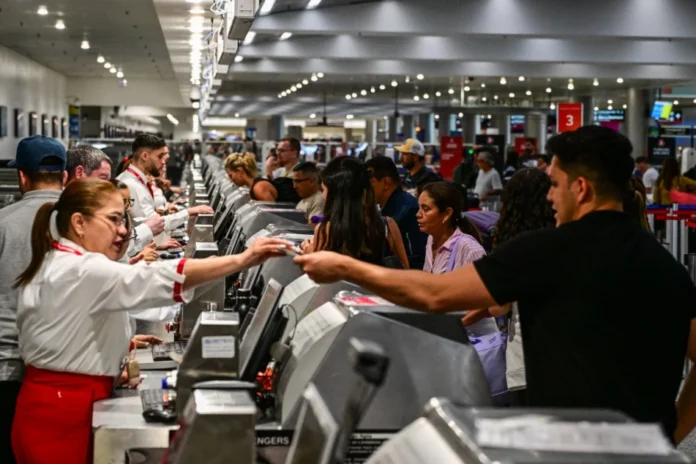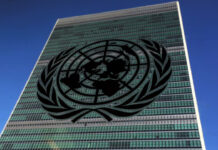
President Donald Trump’s newly reimposed travel ban went into effect just after midnight Monday, barring citizens from 12 countries from entering the United States. The sweeping restrictions mark a revival of one of the most controversial policies from his first term and signal a renewed clampdown on immigration under his leadership.
The ban halts all travel to the U.S. for nationals of Afghanistan, Myanmar, Chad, Congo-Brazzaville, Equatorial Guinea, Eritrea, Haiti, Iran, Libya, Somalia, Sudan, and Yemen. A partial ban was also applied to travelers from Burundi, Cuba, Laos, Sierra Leone, Togo, Turkmenistan, and Venezuela, with limited exceptions for certain work visas.
In a statement last week, Trump said the move was triggered by a recent attack on Jewish demonstrators in Colorado by a man the White House identified as an Egyptian national who had overstayed his visa. “The attack underscored the extreme dangers posed to our country by the entry of foreign nationals who are not properly vetted,” Trump said.
The administration claimed many of the affected countries either have adversarial relationships with the U.S. or lack reliable systems to verify the identity and security status of their citizens. Iran was cited as a state sponsor of terrorism, while several African and Middle Eastern nations were said to lack “competent” authorities to handle passport and identity checks.
The ban includes exemptions for diplomats and athletes competing in international events like the 2026 World Cup and the 2028 Olympics in Los Angeles.
The United Nations and human rights advocates voiced concern over the broad scope of the restrictions. “The sweeping nature of the new travel ban raises concerns from the perspective of international law,” said UN human rights chief Volker Turk.
Domestically, the decision has sparked immediate backlash. Iranian-American Congresswoman Yassamin Ansari denounced the policy on X (formerly Twitter), writing, “I know the pain that Trump’s cruel and xenophobic travel bans inflict because my family has felt it firsthand. We will fight this ban with everything we have.”
Refugees and visa applicants from affected nations have been left in limbo. Mehria, a 23-year-old Afghan woman awaiting asylum, said the ban has shattered hopes. “We gave up thousands of hopes and our entire lives on a promise from America, but today we are suffering one hell after another,” she told AFP.
Despite the uproar, Trump indicated that more countries could be added to the list as new threats emerge. Critics argue that the policy revives discriminatory practices and sidesteps established vetting procedures, while supporters claim it enhances national security.
As legal challenges loom, the travel ban is poised to become another polarizing flashpoint in the ongoing debate over immigration and national identity in the United States.
Written By Rodney Mbua


















